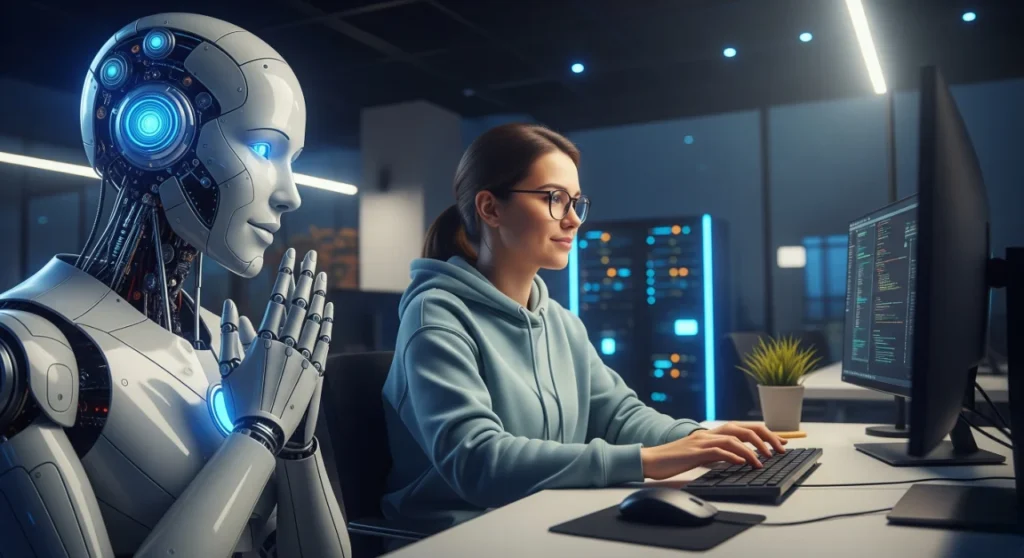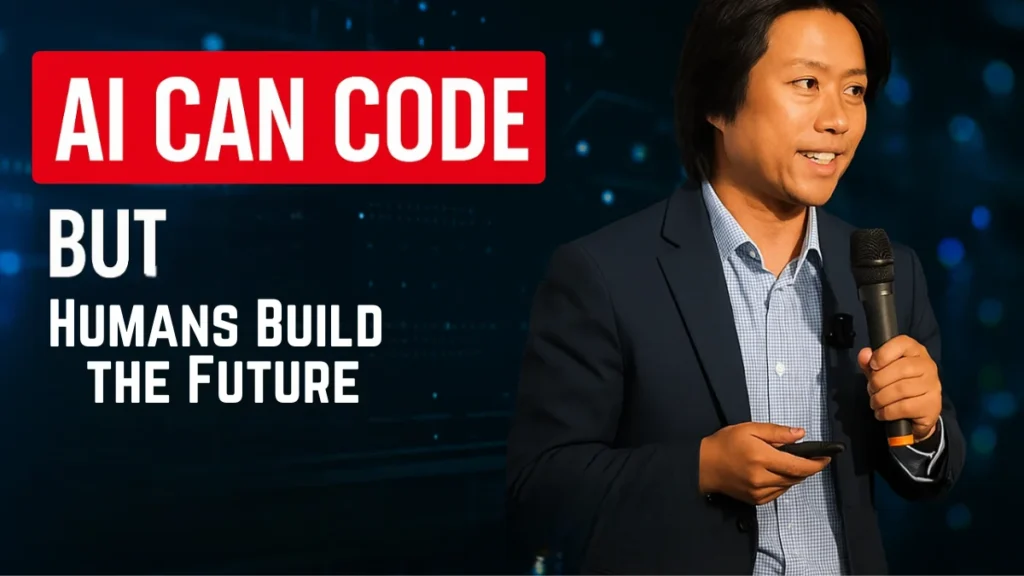As AI tools like GitHub Copilot and ChatGPT write code in seconds, some wonder if learning software engineering is still worth it. Veteran technologist Raymond Fu argues the opposite—AI isn’t replacing engineers, it’s redefining what makes them valuable.
Key Takeaways:
- AI can code, but it can’t define vision, strategy, or ethical guardrails.
- The best engineers will think like architects, leaders, and collaborators—not just coders.
- Foundational skills and adaptability remain the ultimate career insurance.
The Golden Ticket—Then and Now
Back in 2001, one of Raymond Fu’s professors made a bold prediction: “In the future, every job will be a programming job.” At the time, that felt like a guaranteed path to job security. Two decades later, GitHub’s CEO says the future of programming will be natural language.
In other words, instead of typing lines of code, tomorrow’s developers will simply tell AI what to build. It sounds futuristic—and for some, frightening. After all, if AI can already create entire apps in seconds, are we handing over our “golden ticket” to machines?

AI’s Superpowers—and Blind Spots
Fu doesn’t dismiss AI’s capabilities. From translating between programming languages to building user interfaces and fixing bugs, tools like GitHub Copilot and ChatGPT are incredibly powerful. In one experiment, Fu asked ChatGPT to create a Tinder-style dating app in Python. It delivered a working prototype in seconds—profiles, swiping logic, database and all.
But there’s a catch: AI still struggles with the “why” behind the code. It doesn’t understand long-term business goals, real-world trade-offs, or the subtle human contexts that drive great software design. Worse, it sometimes “hallucinates” and outputs wrong answers.
Fu likens AI to a brilliant junior developer—fast, capable, but in need of direction. “It’s the human who defines the vision, validates results, and ensures what we’re building is good for society,” he says.
Beyond Writing Code
The misconception is that software engineering equals coding speed. Fu argues it’s far more than that. Great engineers:
- Translate messy, ambiguous problems into structured solutions.
- Collaborate across teams, bridging design, product, and data.
- Make tough decisions with empathy and ethical foresight.
AI may democratize some technical tasks, but engineers still bring the strategic thinking that turns raw code into meaningful, scalable products.
Why Engineers Still Matter
Fu outlines three reasons software engineers remain essential in the AI era:
- Deep Understanding of AI – Engineers know how models work, their data pipelines, and their limitations. This inside knowledge is key to using AI responsibly.
- Building for Scale and Reliability – While anyone can create a demo with AI, engineers can build production-ready software that lasts.
- Advancing AI Itself – The next generation of AI tools will be created, tuned, and improved by software engineers.
Far from losing their ticket to job security, Fu says engineers are “collecting more”—because they’re no longer just building software, they’re building intelligence.
Training for the Future
If AI can handle much of the grunt work, what should aspiring engineers focus on? Fu offers a roadmap:
- Master the Fundamentals – Data structures, algorithms, and core programming concepts still form the backbone of great engineering.
- Think Like an Architect – Design systems that are scalable, secure, and maintainable.
- Go Full Stack—And Beyond – Future engineers will work across front-end, back-end, databases, design, and even product management.
- Sharpen Communication Skills – The ability to explain ideas and collaborate will be a major career differentiator.
- Embrace AI as a Teammate – Learn prompt engineering, fine-tuning, and retrieval-augmented generation (RAG). Treat AI like a creative partner, not a threat.
- Stay Adaptable – Tools will change, but problem-solving skills last. Learn how to learn.
From Programmer to Leader
Raymond Fu believes the very definition of a software engineer is evolving. In the AI era, engineers won’t just lead teams—they’ll also “lead” AI systems, guiding their output toward responsible, impactful outcomes.
“The future doesn’t belong to those who code the fastest,” Fu says. “It belongs to those who think deeply, adapt quickly, and collaborate efficiently. They’re not just predicting the future—they’re building it.”
Why This Matters Now
AI is raising the floor by making basic coding more accessible to non-engineers. But human engineers will continue to raise the ceiling, driving innovation that machines can’t conceive on their own. In this new landscape, learning software engineering isn’t outdated—it’s a ticket to shaping the future itself.
